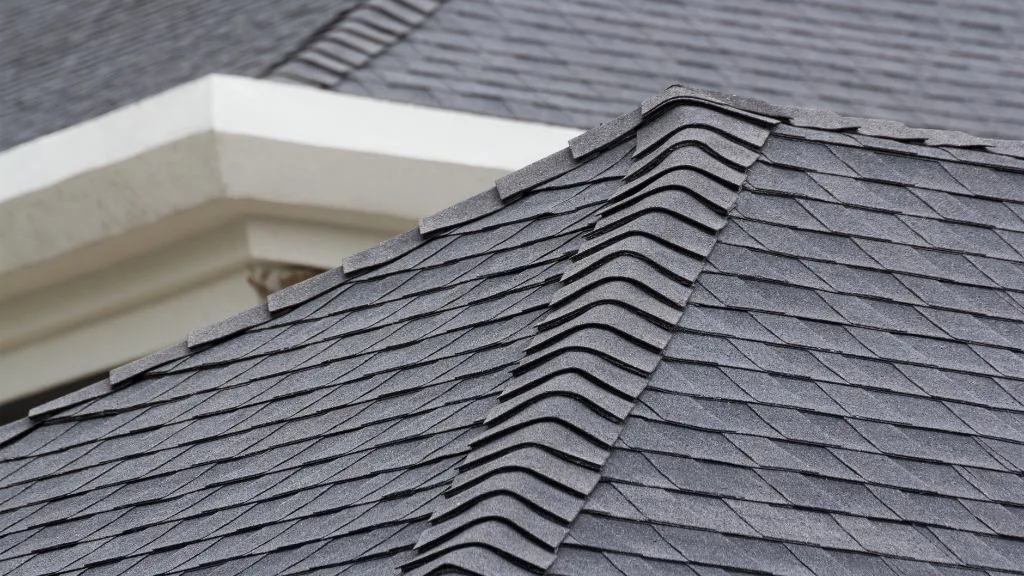
Replacing a roof can be a costly endeavor, especially for larger homes. If you’re a homeowner with a 3000 sq ft roof, you might be wondering what to expect when it comes to the cost of replacement.
The truth is, there are many factors that can impact the total cost, from the type of material you choose to the extent of the damage.
In this article, we’ll explore the various factors that can affect the cost of replacing a 3000 sq ft roof and give you a better idea of what to expect. With this information, you’ll be able to make an informed decision and plan for the financial investment required to keep your home safe and secure.
How Much Does It Cost To Replace A 3000 Sq Ft Roof?
When considering a roof replacement for your 3,000 square foot home, it’s important to have a clear understanding of the costs involved. Roof replacement costs can vary greatly depending on factors such as material, labor, and location.
In this article, we will explore and provide information on the different aspects that contribute to the total cost of replacing a 3,000 sq ft roof so that you can make an informed decision.
As a homeowner, you should know that the cost of replacing a 3,000 sq ft roof ranges from $11,200 to $16,000 on average.
Asphalt roof replacement, the most common type, costs between $5,700 and $12,000 on average, while architectural shingle roofs range from $7,500 to $16,000. These prices can be influenced by factors such as the complexity of the roof and the specific materials used.
By understanding the different considerations and factors that influence the cost of a roof replacement, you can plan your budget accordingly and choose the best option for your home.
Throughout this article, we will delve deeper into these factors and provide you with the necessary information to make the best decision for your roof replacement project.
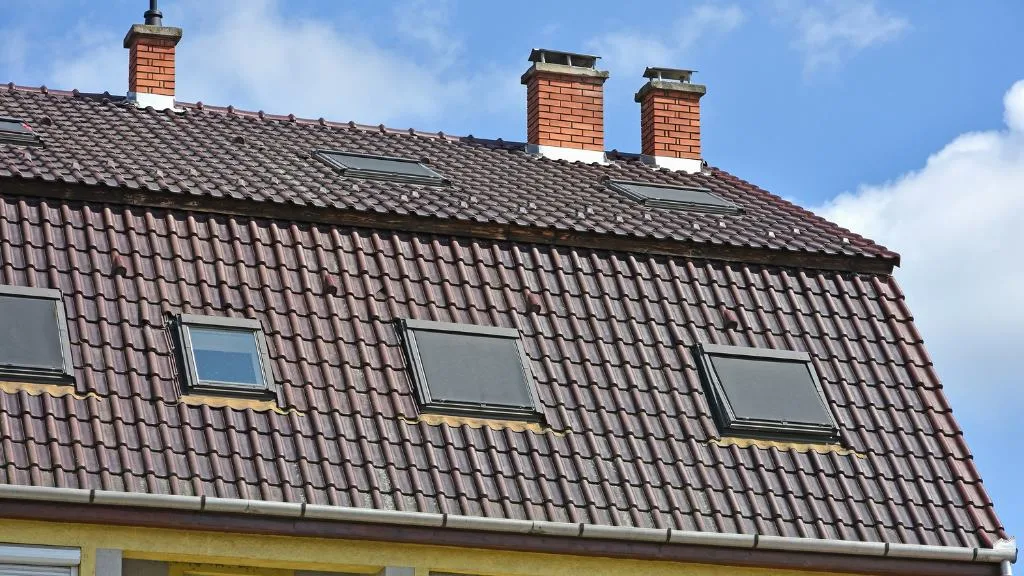
Factors Affecting Roof Replacement Cost
Size
The size of your roof is a significant factor in determining the cost of replacing it. The larger the roof, the more materials and labor will be required.
Roof size is typically measured in “squares” – each square is 100 square feet. To calculate the number of squares required for a 3,000 sq ft roof, divide 3,000 by 100, resulting in 30 squares needed for your project.
Pitch
The slope or pitch of your roof also influences the replacement cost. Roofs with a steep slope or high pitch involve more risk for the workers, as well as increased labor and material costs because of the difficulty involved in the installation process. Higher-pitched roofs require more roofing materials, such as underlayment, to ensure proper coverage.
Complexity
The complexity of your roof’s design, including the presence of gables, dormers, valleys, and other features, can affect the cost of replacement. More complex roofs require additional labor and materials, as the installation process may be more time-consuming and challenging.
Location
The geographic location of your home plays a role in determining the cost of replacing your roof. Factors such as the cost of living in your region, local labor rates, and availability of roofing materials all impact the total cost.
Additionally, some areas may have specific building codes, inspections, or permit requirements that can influence the overall price.
Number of Stories
The number of stories your home has affects the roof replacement cost. Multi-story homes usually involve higher labor costs, as workers need to maneuver materials and equipment more carefully and securely. This also increases the safety risks and the time required to complete the project.
Roof Accessibility
Finally, the accessibility of your roof impacts the replacement cost. Roofs with limited or difficult access may require specialized equipment, such as cranes or hoists, to transport materials and workers to the site. This additional equipment and the increased effort involved will contribute to higher labor costs.
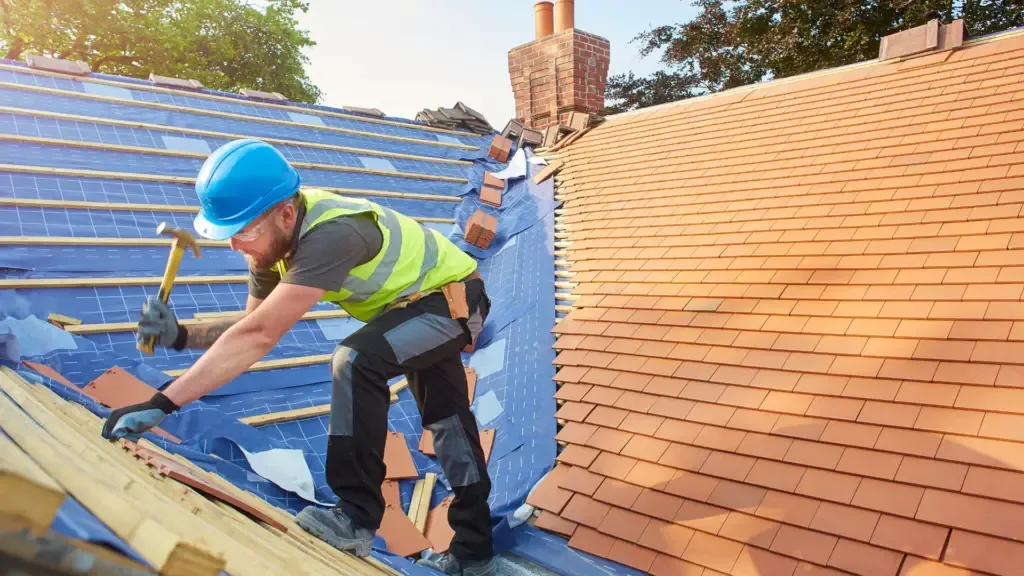
Roofing Materials
When it comes to replacing a 3,000 sq ft roof, the cost will largely depend on the materials you choose. In this section, we will discuss some popular roofing materials, their benefits, and their approximate costs.
Asphalt Shingles
Asphalt shingles are the most common roofing material for residential homes. They are available in two basic types: three-tab shingles and architectural shingles.
Three-tab shingles generally cost between $7,200 and $12,700, while architectural shingles are more expensive, ranging from $9,000 to $16,600. These costs include both materials and labor.
- Pros: Affordable and easy to install
- Cons: Shorter lifespan compared to other materials
Metal Roofing
If you’re considering a metal roof, there are several options available, including corrugated metal, steel shingles, aluminum shingles, and standing seam. Metal roofing can cost anywhere from $14,500 to $30,000 or more, depending on the specific material.
- Pros: Durable, energy-efficient, and low maintenance
- Cons: Expensive upfront costs, may require specialized installation
Wood Shingles and Shakes
Cedar shingles and shakes offer a natural, rustic appearance for your roof. They generally range in price from $20,000 to $30,000 for a 3,000 sq ft roof.
- Pros: Attractive appearance, energy-efficient
- Cons: Higher maintenance and potential for insects, rot, and fire
Tile Roofing
Tile roofing, typically made from clay or concrete, is a popular choice for homes in warmer climates. While the cost can vary greatly depending on the material, expect to pay somewhere between $25,000 and $40,000 for a 3,000 sq ft roof.
- Pros: Durable, low maintenance, and energy-efficient
- Cons: Heavy and expensive, may require reinforcing your roof
Slate Roofing
Slate is a high-end roofing material that offers a beautiful, natural appearance, and exceptional durability. A slate roof can be the most expensive option, ranging from $30,000 to $60,000 for a 3,000 sq ft roof.
- Pros: Long-lasting and low maintenance
- Cons: Expensive and heavy, may require reinforcing your roof
Remember to consider factors such as your home’s architectural style, climate, and your desired aesthetic when choosing the best material for your roof replacement. Additionally, be sure to hire a reputable contractor with experience in installing your chosen material.
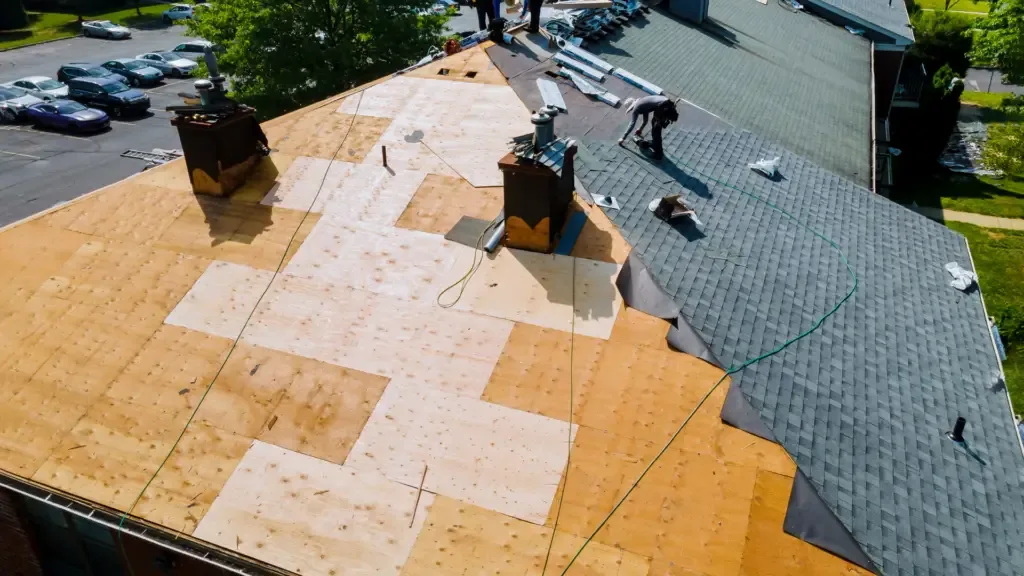
Roofing Components and Accessories
Underlayment
Underlayment is a crucial element of your roofing system, as it provides a secondary layer of protection against water damage. When replacing your 3,000 sq ft roof, you’ll need to choose a suitable underlayment material. Common options include:
- Felt (tar paper): This traditional underlayment is made from asphalt-saturated paper and offers a water-resistant barrier.
- Synthetic underlayment: This modern option is lighter and more durable than felt, providing increased resistance to water and air infiltration.
To select the best underlayment for your roof, consider factors such as your local climate, the roof’s pitch, and your budget.
Flashing
Flashing is an essential component of your roofing system, helping to prevent water from penetrating vulnerable areas like roof valleys, vents, and edges. When replacing your roof, make sure to pay attention to the quality and installation of flashing components. Common flashing materials include:
- Aluminum: This light and corrosion-resistant material is affordable and easy to work with.
- Galvanized steel: This sturdy material is durable, but may corrode over time if it’s exposed to moisture.
- Copper: This premium option offers excellent durability and a visually appealing appearance, but can be more expensive than other choices.
Skylights and Chimneys
Skylights and chimneys are common features of roofs, offering natural light and ventilation to your home. When replacing your roof, consider their condition and potential impact on overall roofing costs. Proper installation and maintenance are essential to prevent leaks and water damage, so plan accordingly.
- If skylights show signs of wear or damage, it may be wise to replace them during the roof replacement process.
- Chimney maintenance should include repointing or sealing any cracks, ensuring the quality of the flashing, and installing proper chimney caps.
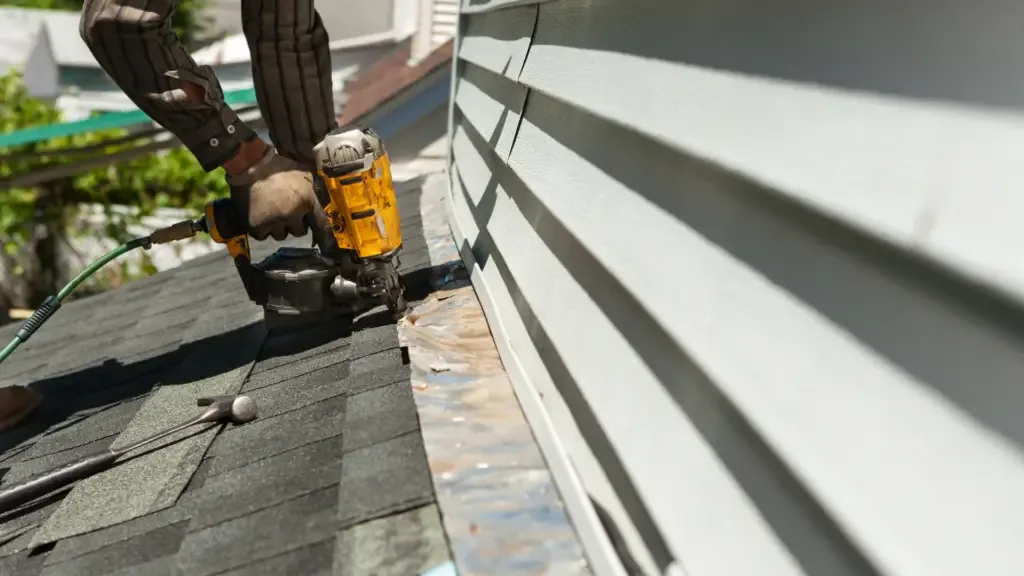
Dormer Windows
Dormer windows are a stylish and functional addition to many homes, creating space and allowing more natural light to enter.
When replacing your roof, it’s important to evaluate the condition of your dormer windows and ensure proper installation to prevent leaks or other issues. Some tips for maintaining dormer windows include:
- Ensuring adequate insulation to prevent energy loss and condensation problems.
- Regularly inspecting the flashing and sealants for signs of wear or damage.
By addressing each of these roofing components and accessories during your 3,000 sq ft roof replacement, you can increase the longevity and performance of your new roof, protecting your home from potential water damage and ensuring a sturdy, reliable shelter for years to come.
Removal of Old Roof and Disposal
Before replacing a 3000 sq ft roof, you need to consider removing the old roof and properly disposing of the materials. The cost of removing and disposing of the old roof mainly depends on the type of roofing material and weather conditions at the time of the replacement.
Below, we’ll break down the process and factors that determine the removal and disposal costs.
Roof Removal
The cost to remove and dispose of old roofing materials will depend on the type, size, and complexity of the roof you have. On average, the cost of removing old shingles is around $1 to $3 per square foot.
For a 3000 sq ft roof, this can range from $3,000 to $9,000. Please note that these costs can vary depending on your location, the roofing contractors you hire, and the specific conditions of your roof (e.g., slope, accessibility).
Disposal of Old Materials
It’s essential to dispose of old roofing materials properly, as improper disposal can harm the environment and result in fines. Disposal costs are typically included in the roof removal or replacement costs.
However, if you need to dispose of the materials separately, it can cost anywhere from $100 to $500 or more, depending on your location, the material type, and the amount of waste.
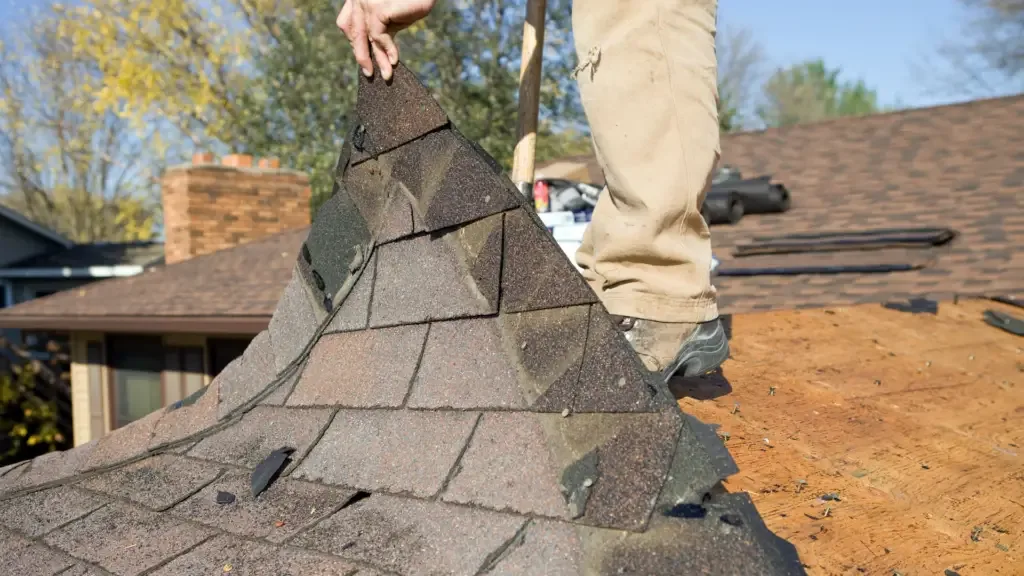
Roof Repairs
During the removal process, it’s crucial to check for any underlying damage, such as water damage, rot, or hail damage.
Depending on the extent and severity of the damage, repairs can significantly impact the total cost of your roof replacement. Some examples of repair costs include:
- Minor repairs: $150 – $700
- Moderate repairs: $700 – $2,000
- Major repairs: $2,000 – $7,000+
Keep in mind that these costs can vary based on the specific issues, material prices, and labor costs in your area.
Weather Conditions
Weather conditions play a crucial role in determining the cost of your roof removal and replacement. For example, if your area frequently experiences hail, wind, or other extreme weather events, the material and labor costs may be higher than expected.
Additionally, if the removal and disposal process takes place during adverse weather conditions, extra precautions and safety measures may be required, which can also increase the overall cost.
In summary, removal of the old roof and disposal can be influenced by factors such as materials, underlying damage, disposal requirements, and weather conditions. Being aware of these aspects will help you better plan and budget for your 3000 sq ft roof replacement.
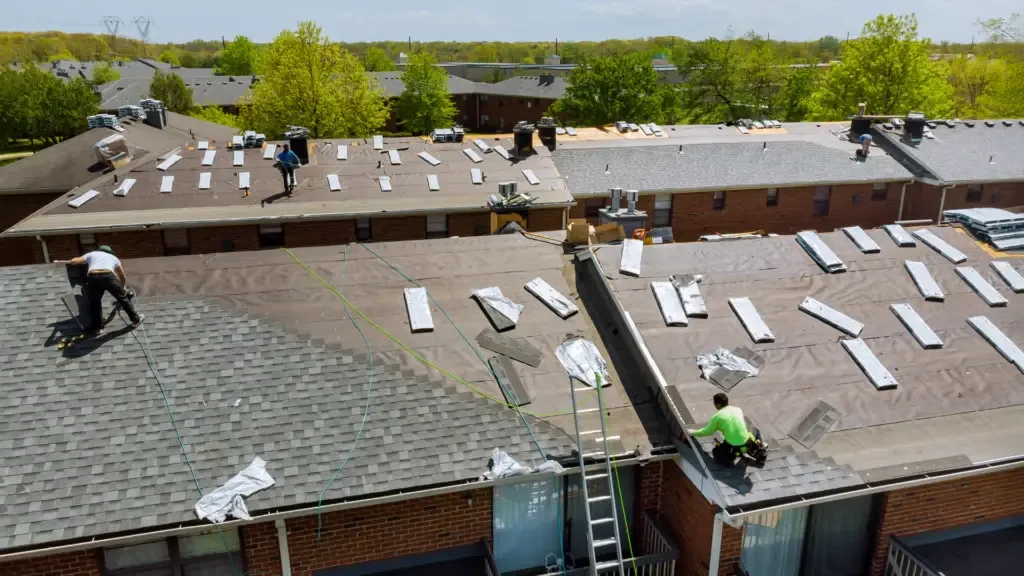
Selecting a Roofing Contractor
Experience
When choosing a roofing contractor for replacing a 3,000 sq ft roof, prioritize their experience with similar projects. Ask for references from previous homeowners and verify their claims.
Experienced roofing contractors will be familiar with various roof materials and installation techniques, ensuring a professional and high-quality job.
License and Insurance
Always verify a roofing contractor’s license and insurance before hiring them. Licenses assure you that the contractor meets industry standards, while insurance protects homeowners from liability for potential injuries during the project.
You can check for licensing information through your state’s contractor licensing board.
- Licensed contractor
- Worker’s compensation insurance
- General liability insurance
Warranty and Workmanship
A reputable roofing contractor will provide warranties for both their workmanship and the roof material. This ensures your investment is covered if there are any issues with the installation or the materials used. Compare the warranty coverage among roofing companies:
| Warranty Type | Coverage Range |
|---|---|
| Contractor | $500 – $2,000 |
| Manufacturer | $500 – $5,000 |
Estimates
To make an informed decision, request detailed estimates from at least three roofing contractors. Compare their rates for labor, materials, and timeline to identify potential issues or discrepancies.
Keep in mind the cheapest option isn’t always the best—pay attention to the quality of materials used, their proposed roofing square calculations, and overall professionalism of the roofer. Ensure your estimate includes:
- Project basics (size, materials, start date)
- Detailed costs (labor, materials, permits)
- Payment schedule and terms
Taking the time to thoroughly research and compare roofing contractors will help you find a reliable professional roofer, ensuring a successful roof replacement for your 3,000 sq ft home.
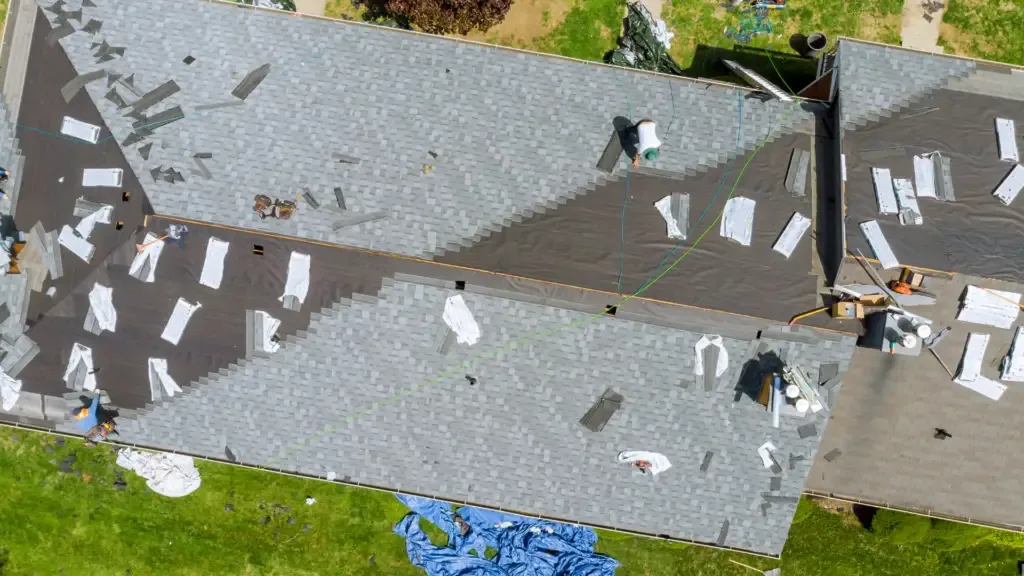
Additional Costs to Consider
Permit and Inspection Fees
When replacing a 3000 sq ft roof, you should be aware of the various additional costs that may arise. One such expense is permit and inspection fees.
Depending on your local jurisdiction, you may need to obtain permits for the roof replacement to ensure that the work complies with building codes. This may include:
- Permit application fees, which can range from $50 to $500, depending on the location
- Inspection fees to ensure that the roof installation meets local and regional safety standards
Structural Repairs
Another factor to consider is potential structural repairs that may be needed during the roof replacement process. If there are structural issues, such as damaged or rotted wood, these will need to be addressed before installing a new roof. Some factors that may contribute to structural repairs include:
- Partial roof replacement due to the extent of damage or age of the roof
- Additional costs for repairing or reinforcing roof supports
- Potential increase in labor costs if roofers have to perform extra work to address structural issues
Weather Conditions and Seasonal Factors
The time of year and weather conditions in your area may also affect the cost of replacing a 3000 sq ft roof. Some points to consider include:
- Roofers may charge more during the summer months due to increased demand for their services
- Unpredictable weather conditions can delay the project, potentially leading to additional labor costs
- Be mindful that in colder climates, heating costs may increase if the roof replacement takes place during the winter months
By considering permit and inspection fees, potential structural repairs, and weather conditions and seasonal factors, you can better understand the additional costs that may arise when replacing your 3000 sq ft roof.
These factors can help you to more accurately budget for your roofing project and ensure that it is completed successfully.
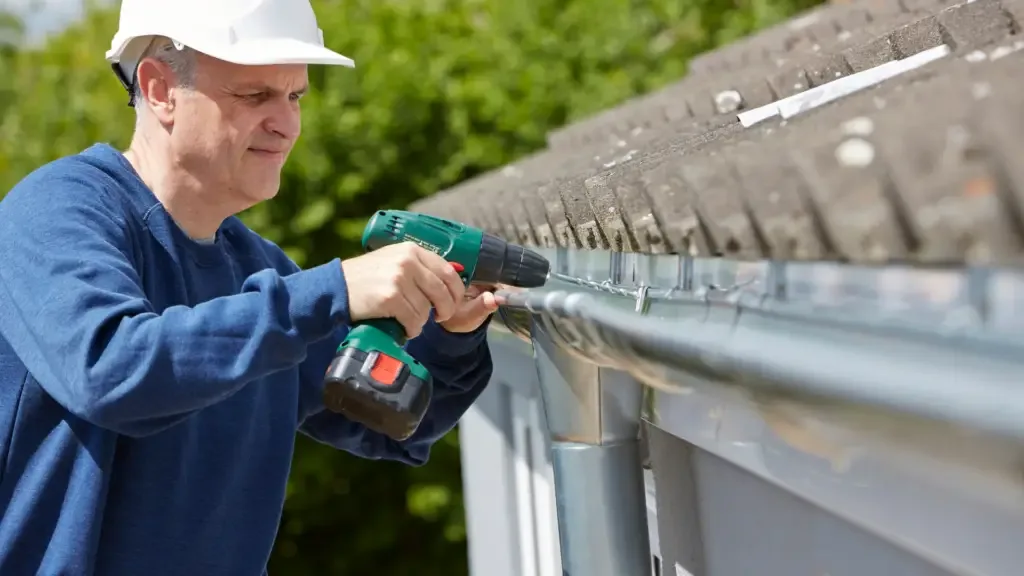
Calculating Roof Replacement Cost
Cost Breakdown
When determining the cost to replace your 3000 sq ft roof, it’s essential to consider three main components: materials, labor, and installation costs. Here’s a breakdown of these factors:
- Materials: Depending on the type of roofing material you choose, costs can vary greatly. For example, asphalt shingles average around $300 to $600 per square (100 sq ft), while metal roofing can range from $700 to $1,200 per square. Always factor in the total material cost for your specific roof type.
- Labor: Roofing labor costs typically range from $150 to $300 per square. This price depends on the complexity of the job, the pitch of your roof, and the contractor you choose.
- Installation: This cost includes the fees associated with removing your old roof, prepping the area for your new roof, and installing your chosen materials. Installation costs will differ based on the type of roof and the contractor.
National Average Cost
The national average cost for a roof replacement, including materials, labor, and installation, ranges from $5,700 to $16,000. Keep in mind that these are average costs, and your location, materials, and contractor choice can greatly influence the final cost of your project.
For example, if you have a 3000 sq ft roof, you can expect to pay around $11,200 to $16,000 for a new roof. This calculation is based on an average cost of $4,000 to $5,500 per 1,000 sq ft.
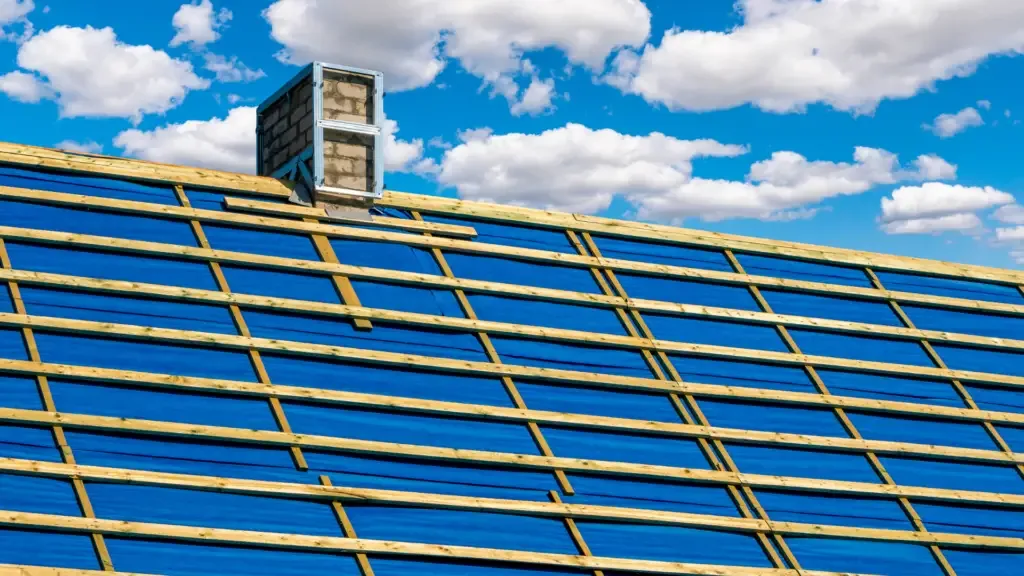
Roof Replacement Cost Calculator
A roof replacement cost calculator can help you to estimate the total cost of replacing your 3000 sq ft roof. These calculators typically require you to input your roof size, materials, and other variables to generate an accurate estimate.
Here’s a simple table to help you calculate the cost of your roof replacement:
| Material | Cost per Square (100 sq ft) |
|---|---|
| Asphalt Shingles | $300 – $600 |
| Metal | $700 – $1,200 |
| Labor & Installation | Cost per Square (100 sq ft) |
|---|---|
| Roofing Labor Costs (varies by location and complexity) | $150 – $300 |
Remember that these costs are only estimates and that the actual cost of your roof replacement may be different based on various factors, such as your location, materials, and chosen contractor.
By considering these factors and using a roof replacement cost calculator, you can accurately estimate the expense of replacing your 3000 sq ft roof and make informed decisions about your home improvement project.

